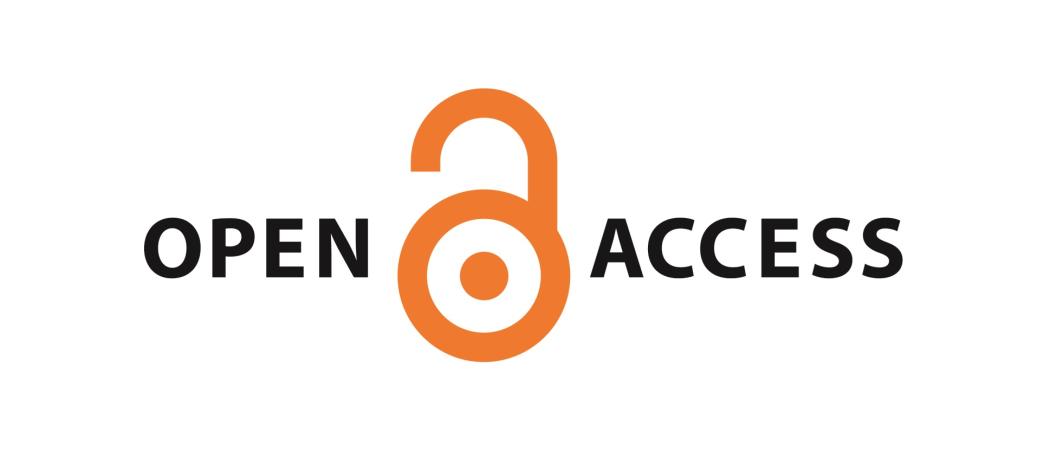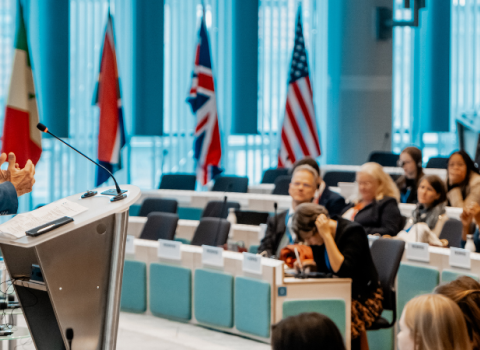Latest: BioMed Alliance: Plan S is “too restrictive and inflexible”

On the surface, Plan S looks like the breaking of the scientific publishing mould. An initiative of Science Europe and Robert-Jan Smits, the European Commission’s former open access envoy, it stipulates that, by 2020, taxpayer-funded research results should be free to read immediately on publication.
It is a sharp departure – some would say threat – to the status quo. Depending on whom you talk to, the scheme, backed by a growing number of influential national funding agencies and research charities, represents the most promising effort to collapse paywalls in the world. But it is also opposed by some as a misguided attack on academic freedom (Read more here and here). And of course, it is also opposed by some scientific publishers.
In this rolling blog, we’ll be bringing you coverage and analysis of the multiple Plan S fissures more closely. The initiative’s organisers say they will publish feedback from their public consultation in the coming months, along with an updated version of the scheme’s ‘implementation plan’. Following, in no particular order, is a summary of some of the Plan S feedback already out there in the world.
Editor’s note: The Science|Business Network of 65 institutional members includes both advocates and opponents of Plan S.
The 10 Plan S ‘principles’ (Listed here)
Who are the main players? (Listed here)
Does your organisation have a view on this? Write to [email protected] for consideration.
7 Mar, 16:00 CET - BioMed Alliance: Plan S is “too restrictive and inflexible”
The Biomedical Alliance in Europe supports the promotion of open access publishing, but has “certain concerns” about the scope and implementation of Plan S. “Some of our members see the plan as underdeveloped, the timeline as too ambitious and the content as too restrictive and inflexible,” the Alliance said in a statement.
“We would like to emphasise that not-for-profit health organisations often depend on the publication of their societies journals as a source of income. These organisations are largely dependent on volunteers and they do not make a profit by publishing journals. Instead, the income is invested in the journal, their organisation and quality education for medical professionals. We believe that these organisations may need more time to adapt to the new situation.”
The full statement is available here.
5 Mar, 15:41 CET - Eurodoc: Time for funders to modernise researcher evaluation
Running through most of the responses to Plan S is the concern that research careers could be negatively impacted by the scheme (unless there are changes to the way science institutions evaluate researchers).
The European Council for Doctoral Candidates and Junior Researchers, a federation of 32 national associations, raises the issue in its submission on Plan S.
“We reiterate three key concerns from our first statement on Plan S: disruption for doctoral dissertations should be minimised; venues with no author-facing fees and societies as well as open infrastructures should be supported; institutions and funders should modernise their researcher evaluation,” the group writes.
Eurodoc also calls for more clarity on sanctions for non-compliant Plan S venues. “It is currently unclear what sanctions will be imposed if a venue does not transition as agreed and whether older paywalled publications will be opened. We encourage COAlitionS to specify the sanctions to be imposed on venues that do not transition and to address older paywalled publications,” the position reads.
5 Mar, 15:40 CET - Free Journal Network: Plan S funders should contribute funds to open access infrastructure
The Free Journal Network, a recently founded organisation that helps coordinate the efforts of open access journals, says they, “Would like to see Coalition members contribute via direct financial support to the sustainability and infrastructure around consortia models”, such as the Open Library of Humanities and arXiv membership model.
The group calls for the Plan S funders to “put substantial resources” into supporting the Open Journal Systems software developed by the Public Knowledge Project, which is used by thousands of journals. “It is worth here remembering that estimates of the amount spent globally on maintaining the present subscription-dominated system are in the region of €7-10 billion per year. Thus, there is an enormous potential for funds to become liberated and diverted into these initiatives, which would be of wider benefit to the entire scholarly community,” the group writes.
Open access advocates: Plan S not your ordinary declaration – ‘It has teeth’
The effort will mark Europe out as a visionary place to do open research, said Stephan Kuster, secretary general of Science Europe, the body that represents national research funding bodies. Having brokered the plan, Science Europe is fully committed. “We didn’t just want this to be another well-meaning declaration,” Kuster said.
While there is a perception in some parts that open access equals low quality, there are also low quality subscription journals, he noted. And the picture is changing. “We are seeing the emergence of top quality open access journals anyway,” Kuster said.
Scientists who speak to Science|Business agree the initiative has teeth. “This is one of the stronger funder-based policies in open access committed to in recent years, and [the funders] should be applauded for that,” said Jon Tennant, palaeontologist and open science activist.
“It is potentially a revolution in the way research outputs are made available to a global audience,” argues Paul Ayris, pro-vice-provost at University College London.
“We believe Plan S will come to be seen as an important landmark in the transition to a full and immediate Open Access system in Europe and beyond,” said Frederick Fenter, executive editor with Frontiers, an open access journal. “The current system can been compared to a super tanker: it takes a long time to turn but cOAlition S (the collective term for Plan S funders) has certainly pulled hard on the rudder — and in the right direction.”
But some scientists say: Plan S won’t work without China or US
With Plan S, Europe is taking a risk in “jumping first”, said Lynn Kamerlin, a structural biologist and principal investigator at Uppsala University in Sweden. “What happens if you lead the charge and no one follows? So many things could go wrong.” Currently, the research produced with funding from Plan S signatories represents less than 10 per cent of global research output.
Kamerlin coordinated a letter last year signed by over 1,000 scientists, including two Nobel laureates, which criticised Plan S as “too risky for science”, “unfair”, and “a serious violation of academic freedom.”
“You cannot argue with the goals of the plan,” she said. “Everything on paper is great, but when you look at it closely, you start to see some holes. What if we’re cutting ourselves out of the best journals, and away from the best research in the world?”
As written, grant holders subject to Plan S would be banned from publishing in hundreds of journals, including influential titles such as Nature and Science, unless those journals flip their business model.
Breaking science’s addiction to top-tier journals is no simple thing, she said: “There’s still no incentive for publishers to change their model unless US or China follow.”
Publishers: Researchers must have freedom to publish anywhere
Predictably, publishers are not swinging behind Plan S. Elsevier, the world’s biggest science publisher, has urged "caution" on the initiative, saying, "Above all, it is vital that researchers have the freedom to publish in the publication outlet of their choice." Emma Ducker, a social sciences publisher with Elsevier, says, “I think it is worth remembering that Plan S is a significant, but still ‘local’ initiative, and our solutions should cater for the needs of the global community.”
The American Association for the Advancement of Science (AAAS), which publishes the journal Science, argues that Plan S “forces authors to select journals that may not reach their intended audiences”. This is because Plan S funded authors will have to publish under a particular type of licence, ‘CC-BY’, which is not currently permitted by all publishers.
The group argues that Plan S does not adequately consider the cost of high-quality science. “[It] requires considerable resource investment to identify the papers that have the potential to significantly impact the pace of science; for thorough peer review that includes not only review of technical merit but also confirmation of adherence to editorial policies; and to partner with the scientific community to establish standards that support transparency and reproducibility,” the AAAS writes.
Springer Nature argues that Plan S as written would have “adverse, potentially counter-productive consequences”. “There seems to be an assumption in the Plan S document that there is a ready demand of authors waiting and wanting to publish OA (open access). But we know from our own research and experience that this is not yet the case,” says Steven Inchcoombe, Springer Nature’s chief publishing officer.
The International Association of Scientific, Technical and Medical Publishers, which represents 145 publishers, similarly argues that Plan S “require further careful consideration to avoid any unintended limitations on academic freedoms”.
It is important not to ignore the value that publishers add, says Lynn Kamerlin, a structural biologist and principal investigator at Uppsala University in Sweden. “People always underestimate how much traditional journals do. They exercise quality control, but they also curate and promote scientists’ work.”
Plan S organisers have not sufficiently thought about how the initiative will affect international collaboration, says Malavika Legge, acting director of publishing with Portland Press, a publisher of journals and books in the cellular and molecular life sciences.
“When you have a group of funders in a ring-fenced number of countries saying, ‘Where we are funding things, we want these rules to play out,’ what happens? What happens when a Chinese author is collaborating with somebody based in Europe, is collaborating with somebody based in the US, and the work is only [partially] funded by one of these funders? Whose rules are going to play out?” Legge told a panel entitled ‘Get Smart about Plan S’ in Frankfurt last October.
EuroScience: ‘Doubtful’ whether Plan S will be ready by 2020
EuroScience, the European grassroots science organisation, is backing the initiative, but says the level of detail that has to be resolved makes a 2020 start date “doubtful”.
“Costs of the measures to be put into place are not yet available, and without significant confirmed global participation, European researchers might suffer,” the group says in a statement. “Most journals in the world do not yet comply with Plan S, and impacts are not clear, for example, for the publishing industry that contributes to the European economy and learned societies that use income from journals to support their scientific communities.”
EuroScience agrees that copyright should remain with authors but says, “The impact of changing publication models on the evaluation of early stage researchers in their career development, or in keeping Europe attractive for early-stage researchers from non-European countries, should not be underestimated and requires parallel action.” Publishing in so-called high impact journals remains the main measure of the quality of individual researchers or their work.
League of European Research Universities: Science publishing needed this ‘kick’
The League of European Research Universities (LERU), an association of 23 European universities, says the open access movement “has stalled” and that the payment of hybrid APCs has not led to a fully open access world. “Open access needs a kick for it to maintain momentum, and LERU recognises that this is what Plan S intends to deliver. For that reason, the overall initiative is a laudable one,” the association writes in its Plan S position.
But like EuroScience, the group calls the timescale “very challenging”. Universities are involved in multi-year deals with publishers, which are legally binding and cannot easily be re-negotiated. In addition, publishers “need time to adapt their infrastructure to the new publishing model Plan S presents”.
Similarly, universities “need clarity on the impact that Plan S will have on career progression”, LERU writes. Also, technical demands by Plan S for researchers to store data in particular formats “would increase university costs”.
While LERU gives its support overall to the initiative, it does urge “the active and engaged support of countries such as China, North America and areas such as the Global South” which, it argues, “are key to ensuring [Plan S] success”.
European Chemical Society: Initiative does not have critical mass to change publishers’ behaviour
The European Chemical Society (EuChemS) says there is not “a sufficient critical mass of articles to encourage global publishers to change their business model and transition their entire portfolio to open access.”
If Plan S is rolled out in isolation, the group says, there will be a “negative impact on the visibility of European science and scientists; a negative impact on collaborations between researchers that are restricted by Plan S and those who are not and who wish to retain the ability to publish in high profile non-Plan S compliant journals; [and a] negative impact on career opportunities for Plan S funded researchers who compete with researchers who have no restrictions.”
EuChemS, which represents some 160,000 chemists across Europe, advises against a cap on article processing charges because it “would undermine the ambition of a well-functioning market and could lead to a market in which it is difficult to maintain and fund high-quality journals with high rejection rates, a key characteristic of journals operated by learned societies.”
Royal Society of Chemistry: Plan S needs to be ‘pragmatic’
The Royal Society of Chemistry (RSC), the UK’s professional body for chemical scientists, says it “supports many of the principles outlined in Plan S, and recognises that its implementation has the potential to create opportunities to further accelerate the move to open access”. At the same time, the RSC “believes that implementation needs to be pragmatic, and designed to reduce, not increase researchers’ workloads.”
The group says that choice is particularly important for early-stage researchers. The journals researchers publish in, and their impact factors, “are still often considered in decision-making in academia about hiring, promotion, grants and awards. This means that restricting journal choice can have negative implications for researchers in a scenario where they are competing with peers not restricted by their funder or institution. Since early career researchers change jobs more often and have a shorter track record and publication list than established researchers, they are likely to be particularly disadvantaged.”
The group is also concerned about who picks up the tab for new publishing models. “If a shift from subscription-based to open access is achieved predominantly via article processing charges (APC)-based models, scholars might be unable to publish their work in high quality journals because their institutions now cannot afford APCs and/or their funders are not supporting APCs,” RSC writes.
The British Academy: No Germany in Plan S is a problem
The British Academy, the UK’s national academy for the humanities and the social sciences, says Plan S coverage is not broad enough. “We see real danger if the rules of Plan S apply only to some countries and not to others. Though there is clearly considerable momentum behind Plan S and, significantly, China has recently expressed interest, there are also signs that some funding bodies have important reservations. It appears that the DFG (German Research Foundation), one of Europe’s largest funders, will not sign up; some private funders in the USA are interested, but public funders are less so.” German funders have not backed the plan because they don’t want to mandate where researchers publish.
The complexity of Plan S technical requirements is also an issue. “We are also concerned that the spelling out of the conditions which such platforms, or other repositories, will have to meet – full text stored in XML in JATS standard, digital preservation programmes such as CLOCKSS – will make them that much harder to set up. Almost no repositories have these features at present.”
European University Association: We’re behind Plan S but urge ‘flexibility’
The European University Association (EUA) says it “supports the principles of Plan S while recommending flexibility in approaches to their implementation.” The group points out that current research assessment approaches “do not yet incentivise or reward publishing in open access journals. Instead, the “prestige” of journals is usually a more decisive factor in evaluations. “Consequently, prevailing assessment practices need to be reformed,” EUA says.
Besides research assessment, the association says there is the “unclear impact of Plan S on international research publications and researcher mobility”, which have emerged “as a major point of concern”, as researchers may face inconsistent publishing policies. “The most logical remedy is to align more funding policies with Plan S,” EUA writes.
University of Oslo rector: Plan S should prioritise ‘care before speed’
In a blog entry posted on The Guild’s website, the University of Oslo’s rector, Svein Stølen, calls for ‘care before speed’ in implementing Plan S. “A hasty implementation of Plan S could mean that our researchers cannot publish in today’s leading journals, thus reducing their attractiveness and competitiveness for positions and projects in the global research ‘market’,” he says.
Stølen is urging a pause. “Plan S is a bold step. But we need a transition phase, and a careful implementation plan involving scientists, institutions and disciplinary societies – alongside funders and governments,” he says.
Without it, we risk “making major decisions that are difficult to reverse,” he warns.





 A unique international forum for public research organisations and companies to connect their external engagement with strategic interests around their R&D system.
A unique international forum for public research organisations and companies to connect their external engagement with strategic interests around their R&D system.